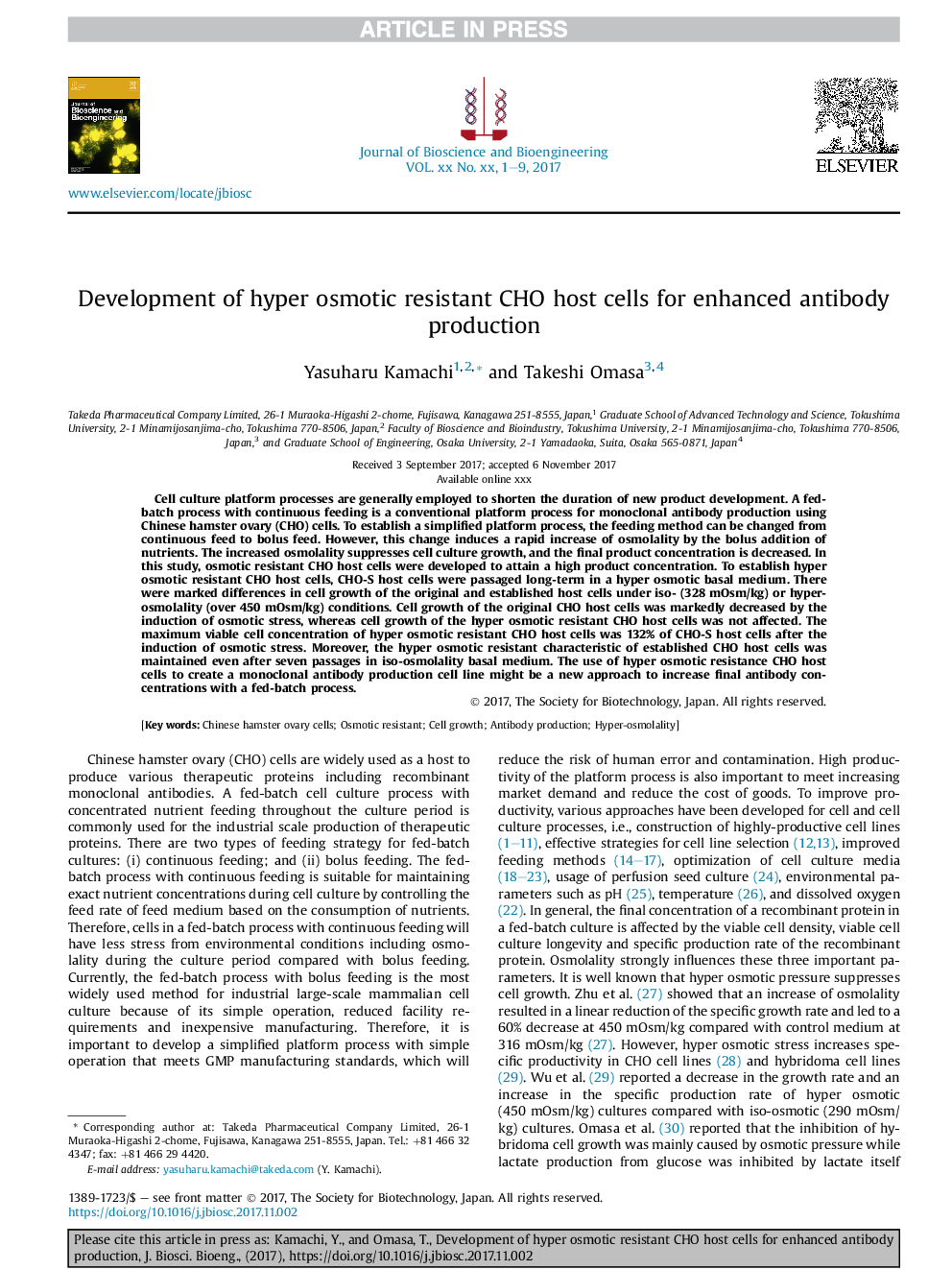| Article ID | Journal | Published Year | Pages | File Type |
|---|---|---|---|---|
| 6489917 | Journal of Bioscience and Bioengineering | 2017 | 9 Pages |
Abstract
Cell culture platform processes are generally employed to shorten the duration of new product development. A fed-batch process with continuous feeding is a conventional platform process for monoclonal antibody production using Chinese hamster ovary (CHO) cells. To establish a simplified platform process, the feeding method can be changed from continuous feed to bolus feed. However, this change induces a rapid increase of osmolality by the bolus addition of nutrients. The increased osmolality suppresses cell culture growth, and the final product concentration is decreased. In this study, osmotic resistant CHO host cells were developed to attain a high product concentration. To establish hyper osmotic resistant CHO host cells, CHO-S host cells were passaged long-term in a hyper osmotic basal medium. There were marked differences in cell growth of the original and established host cells under iso- (328Â mOsm/kg) or hyper-osmolality (over 450Â mOsm/kg) conditions. Cell growth of the original CHO host cells was markedly decreased by the induction of osmotic stress, whereas cell growth of the hyper osmotic resistant CHO host cells was not affected. The maximum viable cell concentration of hyper osmotic resistant CHO host cells was 132% of CHO-S host cells after the induction of osmotic stress. Moreover, the hyper osmotic resistant characteristic of established CHO host cells was maintained even after seven passages in iso-osmolality basal medium. The use of hyper osmotic resistance CHO host cells to create a monoclonal antibody production cell line might be a new approach to increase final antibody concentrations with a fed-batch process.
Related Topics
Physical Sciences and Engineering
Chemical Engineering
Bioengineering
Authors
Yasuharu Kamachi, Takeshi Omasa,
